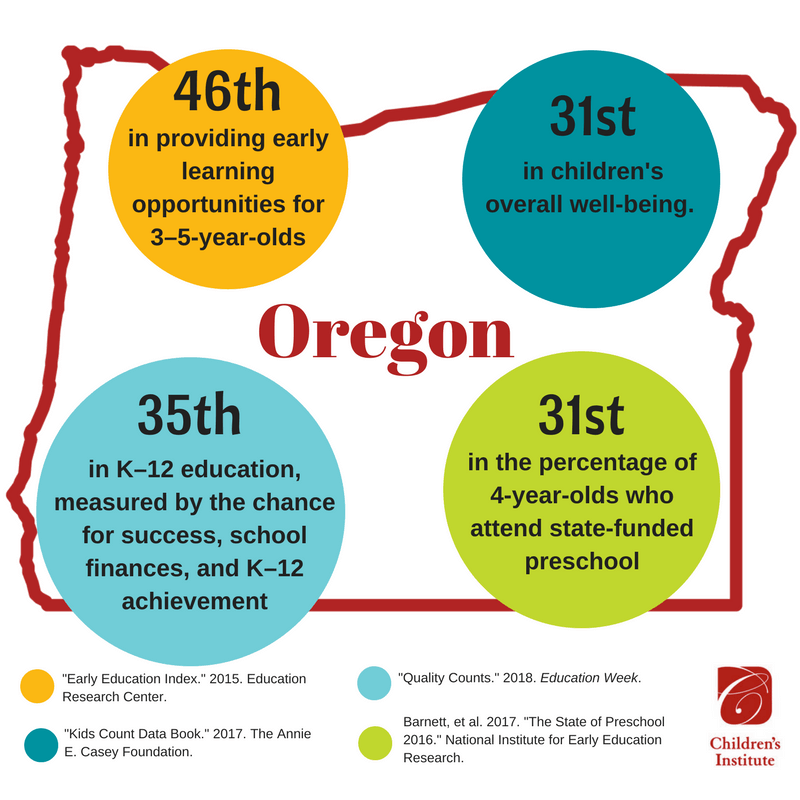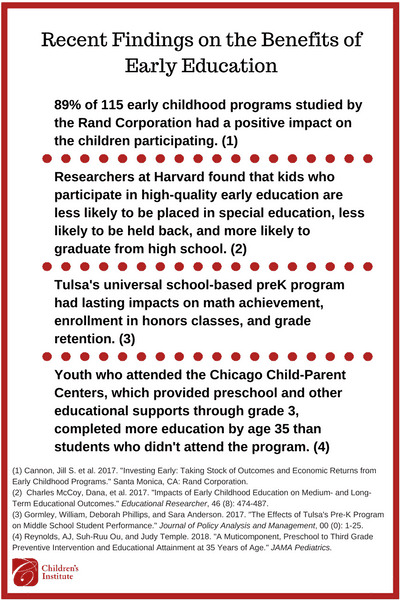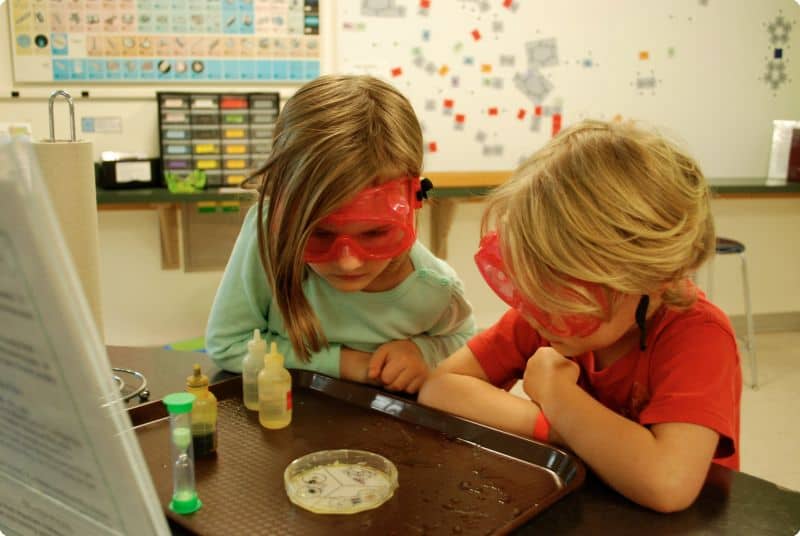 Only 42 percent of 3- and 4-year-olds in Oregon are enrolled in early education. If you’re unaware of the benefits of high-quality early education, you might be inclined to believe that the remaining 58 percent of children in our state, who don’t begin attending school until kindergarten, will catch up with their peers quickly. You might be inclined to believe that early education doesn’t matter in the long run.
Only 42 percent of 3- and 4-year-olds in Oregon are enrolled in early education. If you’re unaware of the benefits of high-quality early education, you might be inclined to believe that the remaining 58 percent of children in our state, who don’t begin attending school until kindergarten, will catch up with their peers quickly. You might be inclined to believe that early education doesn’t matter in the long run.
The research tells us otherwise. We are advocating for increased investments in early education to expand early learning opportunities to more children across the state because we know that it will make a difference over the course of their lives.
What are the benefits of high-quality preschool, and how do we know that they impact a child’s future success? Four recent studies shed some light on the lasting impacts of high-quality early education.
Investing Early: Taking Stock of Outcomes and Economic Returns from Early Childhood Programs
A team of researchers at the Rand Corporation has been studying early childhood for 20 years. Their latest report, released in November of 2017, compiles research on 115 early childhood intervention programs. The outcomes examined were varied, including behavior, test scores, health, and happiness. Eighty-nine percent of the programs—102 of them—had a positive impact on at least one outcome being examined by the researchers. The study found that many of the social and economic benefits of the programs continue to pay dividends as the children who attended become adults. The Rand Review provides a thorough discussion of the study.
Impacts of Early Childhood Education on Medium- and Long-Term Educational Outcomes
Researchers at Harvard considered 22 studies on early education published over 56 years, finding that kids in high-quality early education programs are less likely to be placed in special education, less likely to be held back in school, and more likely to graduate from high school. An editorial in the Dallas News provides a detailed overview of these findings.
 The Effects of Tulsa’s Pre-K Program on Middle School Student Performance
The Effects of Tulsa’s Pre-K Program on Middle School Student Performance
Discussed in both The New York Times and New America, this study conducted by researchers at Georgetown examined the impact of Tulsa’s universal school-based preK program that was launched almost 20 years ago. The study found the preschool program had enduring effects on math achievement, enrollment in honors classes, and grade retention. The benefits of the program were visible as late as middle school.
A Multicomponent, Preschool to Third Grade Preventive Intervention and Educational Attainment at 35 Years of Age
Examining data on 1,539 minority youth in high-poverty neighborhoods in Chicago, researchers found that children who attended the Chicago Child-Parent Centers completed more education by age 35 than children who hadn’t participated. The CPC program was school-based and offered preschool, professional development for teachers and principals, and curriculum alignment from preK through third grade. Education Week discusses the results of the study and compares the study to other long-term early childhood studies.

